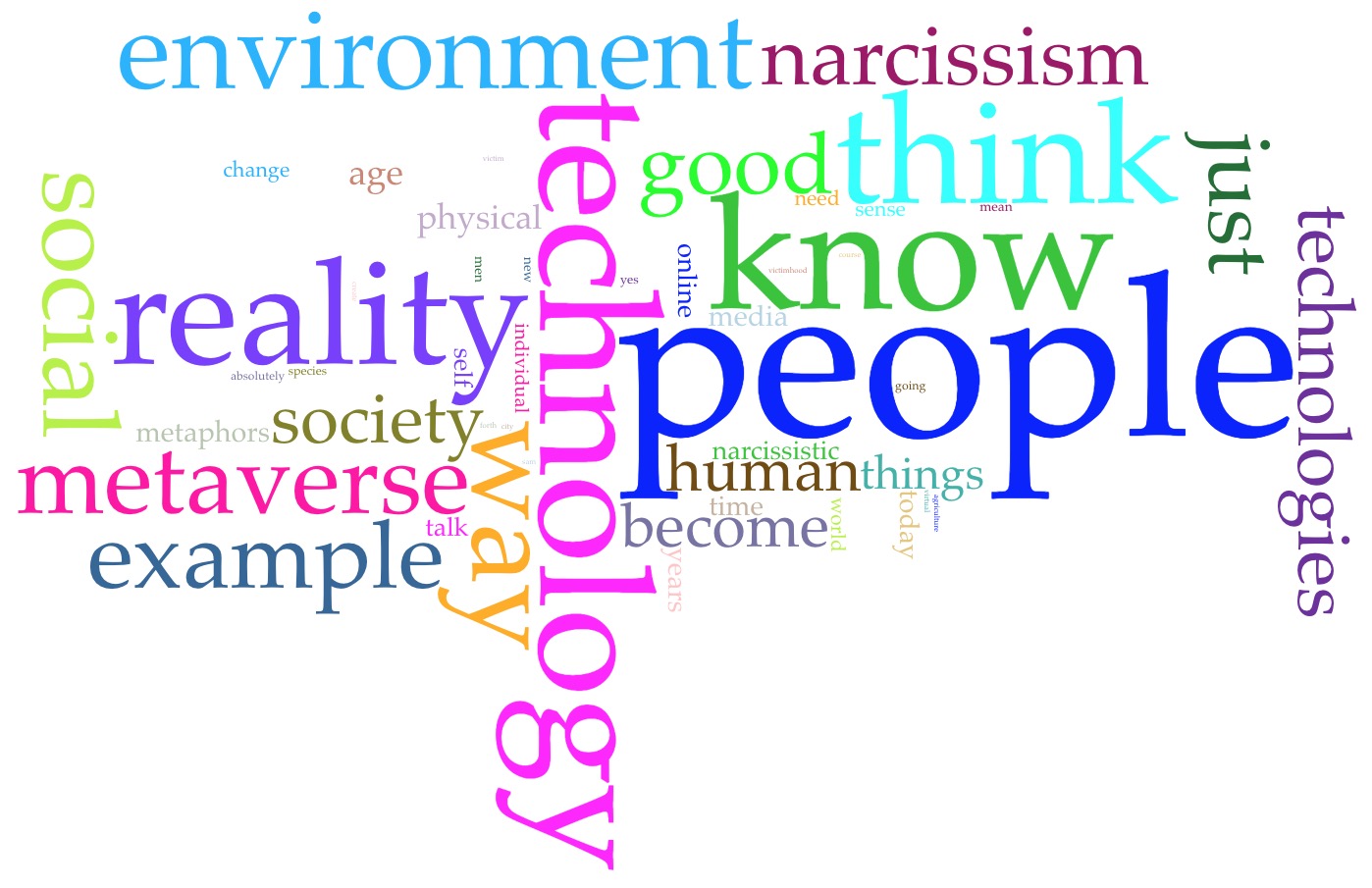The psychology of the metaverse
with Sam VakninDownload this episode in mp3 (33.68 MB).
This work is licensed under a Creative Commons Attribution-NonCommercial-ShareAlike 4.0 International License.
If you've been following this podcast, you know that it aims to explore how digital technology influences our lives, our experiences, and ultimately what it means to be human today. Now, if we agree that the social and technological environment influences or shapes who we are and how we interact with each other, what will it mean to be human in the metaverse? My guest Sam Vaknin has a very interesting theory about the transition from narcissistic cities to a psychopathic metaverse.
Sam Vaknin is the author of "Malignant Self Love, Narcissism Revisited", a former visiting professor of psychology, and currently on the faculty of CIAPS (Commonwealth Institute of Advanced and Professional Studies).
Sam Vaknin's website features over 1400 pages of content, equal to 15,000 print pages, dedicated to narcissism and other personality disorders: https://samvak.tripod.com/
Full transcripts of Sam Vaknin's videos: https://vaknin-talks.com/
List of (main) questions
01:28 Does the environment influence or shape who we are and how we are in society?
06:31 When you talk about the metaverse, in the context of today's conversation, do you include the cyberspace, too?
09:34 Are humans social or asocial (not antisocial) creatures?
16:24 Do you think we can ever blame technology for any significant societal change? Or it's never about the technology, technology does not initiate anything that becomes a significant social change?
24:20 Is technology out of our control? Can we control it and the social phenomena linked to it?
40:37 Explain the difference between narcissism and what you mean when you say 'narcissistic' as in 'we are narcissistic in our society.'
45:55 Isn't there an irony in the fact that we are all allegedly narcissistic and yet there is so much talk about narcissism? We shouldn't want to be exposed. Although when we talk about narcissism, it's never about us: it's always the other person who is narcissistic, we are the good ones.
52:52 As long as I have to stand out, look good, I am still one among many. There is a relationship there. In the metaverse, because it's a solipsistic space, I am all there is. Others are not in the equation anymore. Is this the psychopathic part?
57:53 So, we could expect to go in and out of the metaverse, not live in it permanently. Will we?
59:50 There will be a psychological change with the metaverse, but it will not affect you and me: it's going to take decades, and it's going to be a dramatic change because new generations will be born into it.
01:08:02 What pyshopathic traits exactly you think will become dominant in the metaverse?
01:16:36 Is there anything I didn't ask you today that you would like to add?
01:20:14 From all you have said today, is there anything to be learned? Anything we can do?
01:22:13 Does being narcissistic or a victim imply that you are aggressive? It doesn't seem to be so.
Highlights
11:14 I think the pandemic revealed to us that we are essentially asocial creatures. Not antisocial, but asocial. The concept of society, the structure of society is therefore an imposition, an unnatural imposition. We are lonely creatures. We are solipsistic. We much prefer to be alone. Hunter-gatherers were very small groups. It is when we started to urbanize, or actually when we started to have the agricultural revolution that we were forced, we were coerced into bigger social units. But that's a very recent development. Our species is 1.2 million years old. And our species has spent time in societies only in the last 10,000 years. So it's a very recent development and it's not normal, not natural, absolutely not.
15:46 And I believe this is the reason for the collapse of modern societies. The reason for the collapse of modern societies is that we were forced to live unnaturally, against our nature. We were forced to become social beings when actually we are not social beings. Aristotle was wrong. We are not Zoon Politikon.
18:55 Narcissism started to be on the rise in the 1980s. Long, long, long before social media. It's just that at some point, narcissistic people needed a platform, needed a voice, needed a way, needed an environment where they could thrive, needed a place to position themselves relative to others, to compete, to stand out, to attract attention. So, the needs of narcissistic people brought on the development of social media, not the other way around. It's not social media that created narcissism, narcissism created social media.
25:02 I'm a technophobe. Philosophically. I'm a technophobe. I cannot recall a single technology that has led to positive outcomes. Not one. And that includes the invention of the arrow and the wheel. I cannot think of a single technology that has had long term positive outcomes.

Go to interactive wordcloud (you can choose the number of words and see how many times they occur).
Page created: April 2024